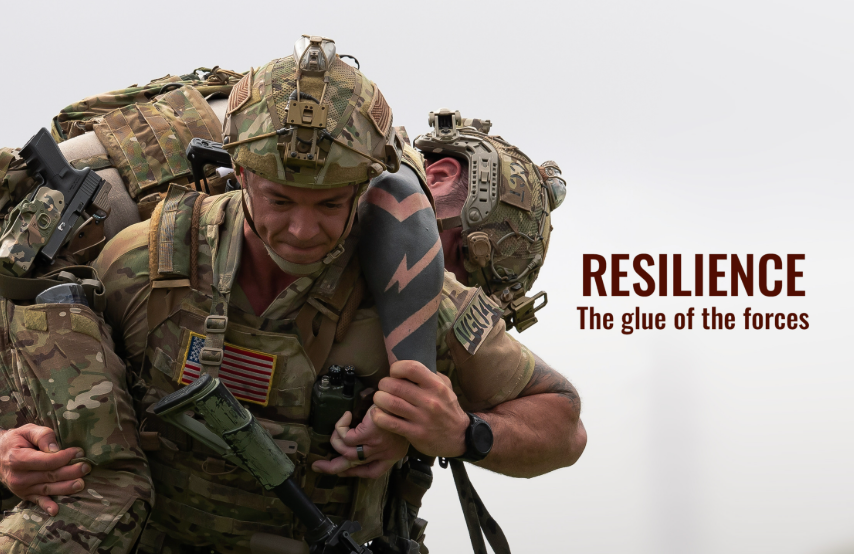
Building Resilience: Learning for Military Success
Frequently Asked Questions
1. Why is resilience important in the military?
2. What is continual learning?
3. How does continual learning improve resilience in military personnel?
4. What strategies can foster continual learning in the military?
5. How do skills acquired through resilience training benefit military personnel after service?
In an ever-evolving world, the importance of resilience has become paramount, especially within military structures. This principle not only contributes to personal well-being but is essential in fostering a culture of adaptability and readiness among service members. One key avenue through which resilience is enhanced is continual learning. This article delves into how continual learning can develop resilience in military personnel, interspersed with insights good for anyone, including medical workers, striving to navigate challenges effectively.
The Nature of Resilience in the Military
Resilience is defined as the ability to bounce back from adversity, trauma, or stress. In the military context, resilience is a critical component in facing the unique pressures and challenges that service members encounter. From rigorous training exercises to the realities of conflict, military personnel must adapt swiftly and efficiently. Developing resilience is not inherently natural; it is cultivated through experience and, importantly, through continual learning.
What is Continual Learning?
Continual learning refers to the practice of constantly developing skills and knowledge throughout one’s life. For military service members, this may mean participating in additional training programs, engaging in simulations, or even studying non-related fields that could aid in improving their core competencies. This mindset not only helps individuals adapt to the rapidly changing demands of military service but also equips them with the tools necessary to overcome difficult situations.
The Role of Continual Learning in Military Resilience
By embracing continual learning, military personnel can significantly enhance their resilience. Here are several ways this applies:
- Adaptability: Continual learning fosters an adaptable mindset, allowing military personnel to face unexpected challenges effectively.
- Knowledge Acquisition: Regular training and education ensure service members are aware of the latest techniques, technologies, and strategies that can save lives during critical missions.
- Emotional Growth: Learning about psychological resilience and stress management can help individuals maintain their mental health, crucial for military operations.
- Team Dynamics: Knowledge-sharing among peers strengthens team bonds, leading to improved communication and unity during challenging scenarios.
Real-World Application of Learning and Resilience
In the military, resilience isn't strictly theoretical; it translates into real-world applications. Consider the rigorous training exercises that simulate stressful combat situations. Through continual learning, service members develop coping mechanisms to handle these high-pressure environments effectively. They learn from their failures, improve their decision-making skills, and become more capable under pressure.
Alongside formal training, practical experiences derive valuable lessons. While enduring high-stakes operations, individuals who engage in continual learning often share insights with one another, promoting a collective resilience. This communal approach mirrors cooperation seen in various professions, including medical workers who also face high-pressure situations requiring teamwork and quick thinking.
Strategies to Foster Continual Learning in the Military
Creating a culture of continual learning within military organizations is essential for resilience development. Here are some strategies that can be employed:
Formal Education Programs
Establishing robust education programs can greatly influence military personnel's continual learning journey. These programs may focus on leadership, technical skills, and operational readiness. Access to resources like online courses, workshops, and seminars can also contribute to expanding knowledge bases.
Mentorship and Peer Learning
Encouraging mentorship relationships pairs seasoned service members with junior personnel. This process allows for the sharing of experiences and insights crucial for developing resilience. Learning from others’ stories can provide practical lessons that formal training may not cover.
Encouraging Feedback Culture
A culture that embraces feedback helps service members to identify areas for improvement. Constructive criticism allows individuals to learn from their experiences, reinforce their skills, and cultivate resilience through growth.
Overcoming Challenges in the Learning Process
Despite the importance of continual learning, several challenges can impede the process in military settings:
- Time Constraints: With demanding schedules, finding time for learning can be tough. Military leadership can mitigate this by incorporating learning within operational activities.
- Cultural Barriers: Some climates may prioritize traditional training over innovative learning methods. Cultivating a diverse environment that values differing perspectives can break down these barriers.
- Resistance to Change: Often, individuals may resist new learning methods. Providing clear benefits and showcasing success stories can encourage buy-in from personnel.
A Case to Learn from Others
In the realm of resilience and continual learning, the military can look towards various sectors, including healthcare. Many medical workers emphasize learning from patient encounters to develop resilience. This approach could be mirrored in the military's approach to resilience training, fostering an environment where each operation provides a learning opportunity.
Creating a Resilient Mindset through Continuous Improvement
Resilience extends beyond resisting challenges; it’s about thriving amid adversity. Military personnel can develop this mindset by integrating continual learning into their routines. Here are some practices to embody this approach:
- Embrace a Growth Mindset: Cultivate the belief that abilities can be developed through dedication and hard work.
- Seek Knowledge Daily: Dedicate time each day to learn something new, whether through reading, watching educational videos, or participating in training.
- Reflect on Experiences: After training or missions, take time to reflect on what went well and what could improve. This practice reinforces learning from real experiences.
The Importance of Resilience Beyond Military Life
The skills acquired through resilience training and continual learning extend beyond military life. Veterans and service members who harness these skills are often better positioned to tackle the challenges and transitions they face upon returning to civilian life. Continual learning promotes adaptability, a quality invaluable in navigating any career path.
Embracing a Future of Lifelong Learning
As military environments evolve, the demand for resilience combined with continual learning will remain central to the mission's success. Continual learning not only cultivates resilience within military personnel but also instills essential life skills they can carry into their future endeavors. From formal training programs to peer support, the avenues for developing resilience are vast and diverse.
So, as we forge ahead into an uncertain future, let’s maintain the spirit of inquiry and improvement. With continual learning as our foundation, we can prepare ourselves to meet any challenges that come our way. It’s time to embrace resilience as a lifelong journey and engage in an ongoing quest of growth and knowledge!




